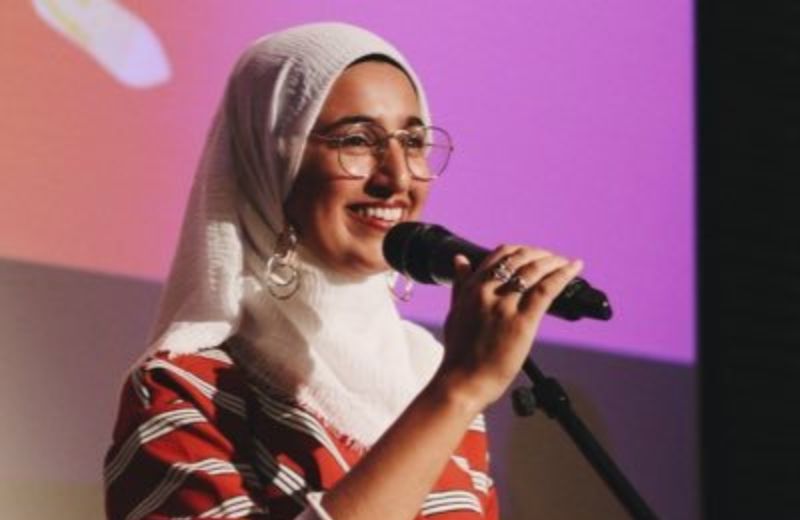Workshop uses poetry to challenges Islamophobia

There’s an age-old debate about whether art can influence public opinion and contribute to social change. Regardless of personal views, its potential to create empathy in people from different backgrounds and to challenge assumptions was at the forefront of Leeds Trinity University’s recent Reclaiming the Narrative About Islamaphobia workshop.
Organised by the University’s Islamic Society, it was led by spoken word poet Suhaiymah Manzoor-Khan. It opened with a reading of her award-winning ‘This is not a Humanising Poem’, which has been used by Amnesty International thanks to its powerful message that, “if you need me to prove my humanity / I’m not the one that’s not human.”
This call for greater empathy and understanding was used as a prompt for attendees to consider how we would define Islamophobia, the view of the problem as seen by existing imperial power structures, and how we might then understand it differently by creating a new narrative.
Each of these themes was thought-provokingly unpicked through the sharing of individual experiences and group discussion. These encouraged attendees to think big and to disrupt assumptions about race, history and violence.
When discussing the current narrative about Islamophobia, for instance, Manzoor-Khan suggested the solution to ‘acts and words of hate’ was not hate crime legislation. She argued that this fails to address the root cause and leads to an unspoken assumption that the problem will – and indeed has – persist. Likewise, when reclaiming the narrative, she stressed the importance of acknowledging that Islamophobia is ‘racism dressed up as something else,’ which she intrinsically linked with a colonial world system.
There were moving responses from attendees when the debate turned to imagining what is beyond the current solution. These included ‘to say my own name without shame’, ‘not having to represent all Muslims’, and ‘to be seen as human’. It was acknowledged that there is no simple way in which to achieve these basic rights, although making structural power changes and the role of arts and creativity in driving change were highlighted.
The final section of the workshop brainstormed ‘demands’ to be made on the University – and by extension all Higher Education providers – to drive forward change. These included the practical, such as mandatory curriculum training about racism, ensuring proper accountability from senior management teams, and carefully considering the language being used (e.g. a student who is Muslim, not a Muslim student). There was also the more aspirational, such as making Eid a public holiday.
In effectively challenging presumed solutions, the workshop provided much for Go Higher West Yorkshire (GHWY) to consider. This work will primarily continue through our Decolonising the Curriculum Network, and Action Group for Students from Black, Asian and Minoritised Ethnicities.
As part of our ongoing journey towards becoming a more overtly inclusive organisation, we have also recently added EDI (Equality, Diversity and Inclusion) as a standing item on our team meeting agenda. This arose from a team member’s suggestion to encourage discussion and the sharing of relevant information. Furthermore, members of our leadership team have joined some anti-racism training through the Bradford Inclusive Employers Network.
These might be small steps when compared with Manzoor-Khan’s call to think big, but much can be achieved when acting on the adage to dream big, start small, act now.
Susan Darlington, GHWY Partnership Assistant
